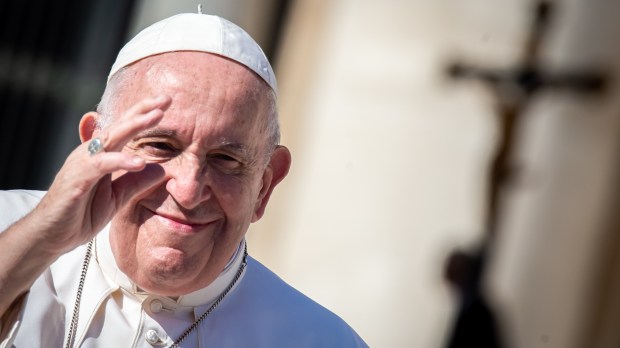“Knowing oneself is not difficult, but it is laborious: It implies patient soul-searching.”
This was the Pope’s observation as he continued his catechesis series on discernment at the Wednesday audience of October 5, 2022.
Last week, he spoke of the importance of natural, intimate prayer for finding God’s will. Today he turned his attention to “an almost complementary” theme: “To emphasize that good discernment also requires self-knowledge.“
Self-knowledge. And this is not easy, eh! Indeed, it involves our human faculties: memory, intellect, will, affections. Often, we do not know how to discern because we do not know ourselves well enough, and so we do not know what we really want.
The Pope cited his fellow Jesuit, Thomas Green, who writes in Weeds Among the Wheat: “Almost all of us hide behind a mask, not only in front of others, but also when we look in the mirror.”
“Forgetfulness of God’s presence in our life goes hand in hand with ignorance of ourselves – ignoring God and ignoring ourselves – ignorance of our personality traits and our deepest desires,” the Pope reflected.
Not difficult
The Pope said that we have to be patient in the effort to get to know ourselves. We have to “deactivate the autopilot,” he said, and become aware of how we act, how we feel and think.
It also requires that we distinguish between emotions and spiritual faculties. “I feel” is not the same as “I am convinced”; “I feel like” is not the same as “I want.” Thus, we come to recognize that the view we have of ourselves and of reality is at times somewhat distorted. To realize this is a grace!
Indeed, very often it can happen that erroneous convictions about reality, based on past experiences, strongly influence us, limiting our freedom to strive for what really matters in our lives.
Pope Francis suggested the image of passwords. We have to know the password to the heart, he said – that is, the things that most touch us, “what we are most sensitive to.” But, he warned:
The tempter, that is, the devil, knows these passwords well, and its important that we know them too, so as not to find ourselves where we do not want to be.
He explained how Satan tempts with things that aren’t necessarily bad, but simply taken out of their proper order and then “presented with excessive importance.”
In this way [temptation] hypnotizes us with the attraction that these things stir in us, things that are beautiful but illusory, that cannot deliver what they promise, and therefore leave us in the end with a sense of emptiness and sadness. That sense of emptiness and sadness is a sign that we have embarked on a path that was not right, that has disoriented us. …
This is why, dear brothers and sisters, it is important to know ourselves, to know the passwords of our heart, what we are most sensitive to, in order to protect ourselves from those who present themselves with persuasive words to manipulate us, but also to recognize what is truly important for us, distinguishing it from current fads or flashy, superficial slogans. Many times, what is said in a television programme, in some advertisement that is made, touches our hearts and makes us go that way without freedom. Be careful about that: Am I free, or do I let myself be swayed by the feelings of the moment, or the provocations of the moment?
Examen
As a tool in the process of self-knowledge, the Pope recommended a hallmark of Jesuit spirituality: the examen prayer.
He gave some questions that might characterize this prayer:
~ What happened in my heart in this day? “Lots of things happened…” Which? Why?
~ What traces did they leave in my heart?
It is a “good habit of calmly rereading what happens in our day, learning to note in our evaluations and choices what we give most importance to, what we are looking for and why, and what we eventually find. Above all, learning to recognize what satiates the heart.”
~ What satiates my heart?
For only the Lord can give us confirmation of what we are worth. He tells us this every day from the cross: He died for us, to show us how precious we are in his eyes. There is no obstacle or failure that can prevent his tender embrace. The examination of conscience helps a great deal, because in this way we see that our heart is not a road where everything passes without us knowing about it. No.
~ To see: What passed by today?
~ What happened?
~ What made me react?
~ What made me sad?
~ What made me joyful?
~ What was bad, and did I harm others?
Seeing the route our feelings took, the attractions in my heart during the day. Don’t forget! The other day we talked about prayer; today we are talking about self-awareness.
Prayer and self-knowledge enable us to grow in freedom. This is to grow in freedom! They are basic elements of Christian existence, precious elements for finding one’s place in life.

